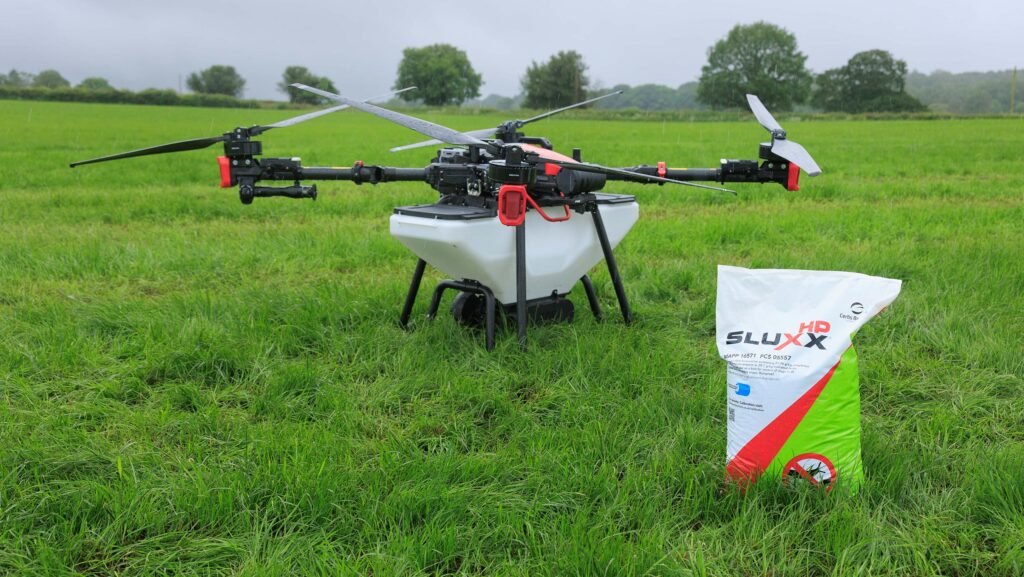Drone spreading of slug pellets moves a step closer
 © Certis Belchim
© Certis Belchim Applying plant protection products from drones has moved a step closer, following the granting of a new trials permit by the Health and Safety Executive’s Chemicals Regulation Division (CRD).
The permit is for a slug pellet product, supplied by distributor Certis Belchim, which will be applied on a trial basis by Staffordshire-based technology company AutoSpray Systems.
See also: Widespread adoption of drone spraying edges closer
Autospray co-founder Andy Sproson explained that a number of hurdles had to be cleared to secure the permit, including seeking clearance from the Civil Aviation Authority and showing how the product would behave if spread from the air.
The firm also had to set out a justification to the CRD for aerial spreading – namely that application by drone could reduce soil and crop damage, lower pollution risk, and allow more targeted application.
Ballistics testing
Having now secured the trials permit, AutoSpray and Certis Belchim plan to conduct ballistics testing straight away.
They aim to show regulators that the spreadability of Sluxx HP pellets is as good as it has proven to be from conventional applicators.
“Once this data is submitted to CRD, an Extension of Authorisation for Minor Use should be granted soon after, and growers with access to a large-payload drone will be able to apply slug pellets from the air,” a spokesman said.
In work carried out last year, a specialist agricultural drone imported by AutoSpray broadcast cover crop seed into standing cereals at speeds of 30-35kph.
With a single drone, plus multiple batteries, a generator and a fast charger, work rates of 15-20ha an hour are possible. The same will apply to slug pelleting.
“It’s the first time a new application method has been made available to growers for many years and offers an option that compliments conventional machinery,” said Mr Sproson.

